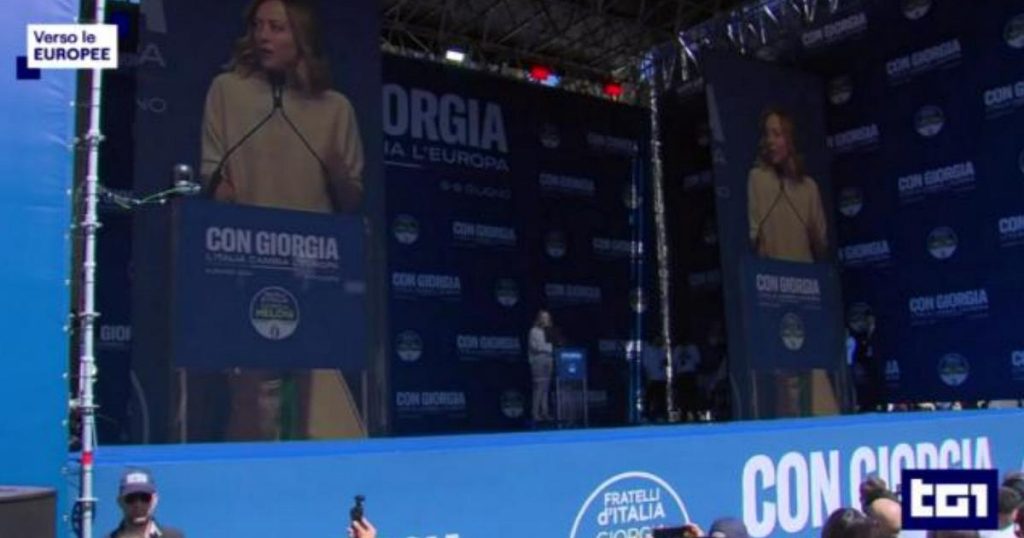Giorgia Meloni, leader of Fratelli d’Italia (FdI), is advocating for a Europe of nations in the lead-up to the European elections. She believes that in order to make history and create real change, there needs to be a majority alternative to the left. Meloni is positioning herself as the premier candidate in all districts, emphasizing the importance of having a strong and united voice in the European Parliament. By promoting the idea of a Europe of nations, Meloni is pushing for a more decentralized and sovereign approach to governance within the European Union.
Meloni’s push for a Europe of nations is a rejection of the current trend towards centralization and federalism within the EU. She believes that empowering individual nations within the EU is the key to creating a stronger and more effective union. By promoting national sovereignty and cooperation, Meloni hopes to foster a sense of unity and solidarity among member states. This approach stands in contrast to the traditional idea of a more centralized and bureaucratic European government, which she believes has failed to effectively address the needs and concerns of its citizens.
As the leader of a right-wing party, Meloni’s vision for Europe is based on principles of national identity, cultural heritage, and traditional values. She believes that by promoting these ideals, she can create a Europe that is more in line with the values and beliefs of its citizens. Meloni’s emphasis on national sovereignty and cooperation reflects a broader trend within European politics towards a more nationalist and populist agenda. By appealing to these sentiments, she hopes to garner support and mobilize voters who feel marginalized or disaffected by the current political establishment.
Meloni’s stance on Europe is not without its critics, however. Some detractors argue that her vision for a Europe of nations is inherently divisive and exclusionary. They claim that promoting national sovereignty over European unity could lead to increased tensions and conflict within the EU. Additionally, critics argue that Meloni’s emphasis on traditional values and cultural identity could alienate minority groups and undermine efforts towards greater inclusivity and diversity within European society. Despite these criticisms, Meloni remains steadfast in her beliefs and continues to advocate for a Europe of nations as a viable alternative to the status quo.
In the lead-up to the European elections, Meloni’s campaign is focused on building a strong and united front against the left. She believes that by rallying support from other right-wing parties and movements across Europe, she can create a majority alternative that is capable of challenging the current political establishment. Meloni’s position as the premier candidate in all districts underscores her commitment to leading this movement and shaping the future of Europe. With the European elections fast approaching, Meloni’s message of unity, sovereignty, and change resonates with many voters who are looking for a new direction for the EU.
Overall, Giorgia Meloni’s call for a Europe of nations presents a distinct and provocative vision for the future of the European Union. By promoting principles of national sovereignty, cultural heritage, and traditional values, she offers an alternative to the current trend towards centralization and federalism within the EU. While her vision may be controversial and divisive, it has struck a chord with many voters who are seeking a new direction and a break from the status quo. As the European elections approach, Meloni’s campaign serves as a rallying point for those who believe in a stronger and more united Europe, based on the principles of national identity and cooperation.














